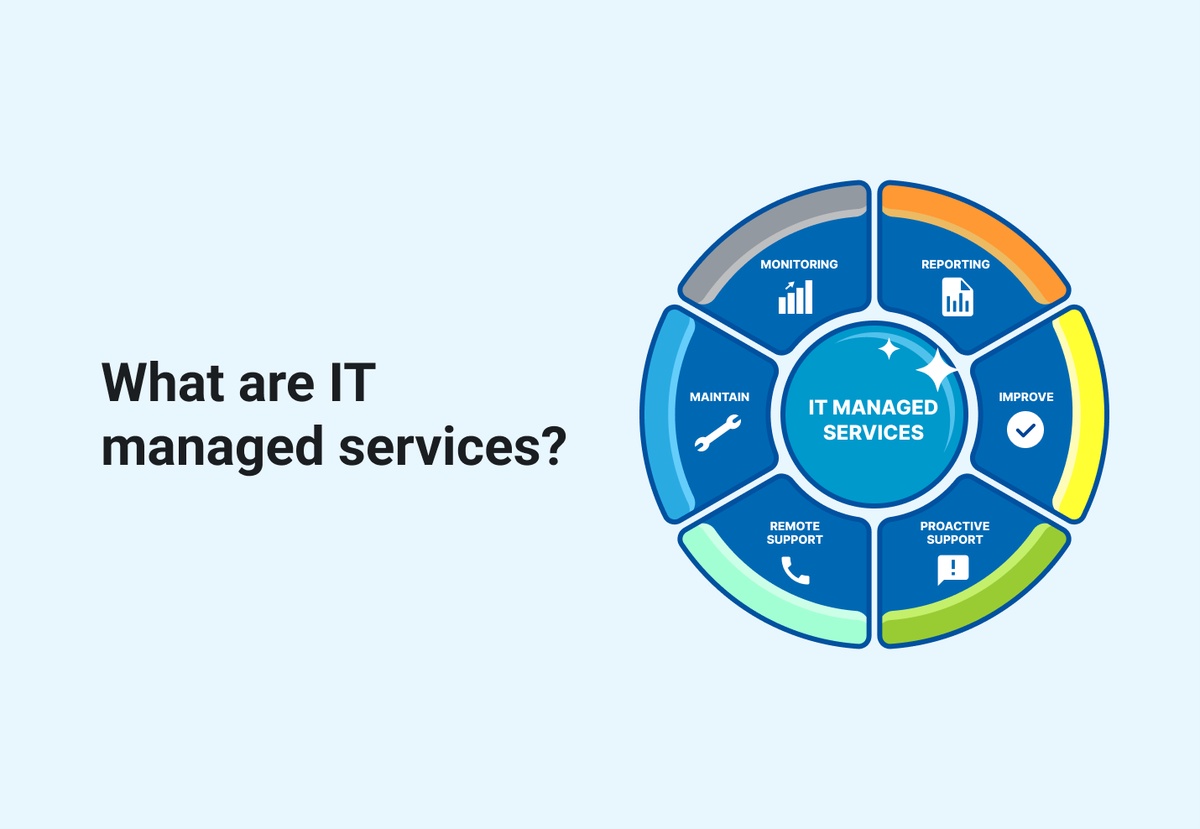Introduction:
In today's rapidly evolving digital landscape, businesses of all sizes are recognizing the critical role that technology plays in their success. To stay competitive and secure, companies are increasingly turning to Managed IT Services as a strategic solution. This article explores the benefits and key considerations of leveraging Managed IT Services for businesses.
What are Managed IT Services?
Managed IT Services involve outsourcing the responsibility for maintaining, managing, and improving a company's IT infrastructure and processes to a third-party provider. This strategic approach allows businesses to focus on their core competencies while experienced professionals handle their technology needs.
Benefits of Managed IT Services:
-
Cost Efficiency:
- Predictable Expenses: Managed IT Services often operate on a subscription-based model, providing businesses with predictable monthly expenses.
- Reduced Infrastructure Costs: Outsourcing IT services eliminates the need for extensive in-house infrastructure, reducing capital expenditures.
-
Expertise and Proactive Support:
- Access to Specialized Skills: Managed IT Service providers employ skilled professionals with expertise in various technologies, ensuring that businesses have access to a broad spectrum of skills.
- Proactive Monitoring: Continuous monitoring of systems allows for early detection of potential issues, minimizing downtime and preventing major disruptions.
-
Enhanced Security:
- Robust Cybersecurity Measures: Managed IT Service providers implement robust security protocols to protect businesses from evolving cyber threats.
- Regular Updates and Patch Management: Keeping software and systems up-to-date ensures vulnerabilities are addressed promptly.
-
Scalability and Flexibility:
- Easily Scalable: Managed IT Services can scale with the growth of your business, accommodating changes in technology needs seamlessly.
- Flexibility: Customizable service plans allow businesses to choose the services that align with their specific requirements.
-
Focus on Core Competencies:
- Business Alignment: With IT concerns in capable hands, businesses can concentrate on their core functions, fostering innovation and growth.
- Reduced Workload: IT professionals can focus on strategic initiatives rather than routine maintenance tasks.
Key Considerations when Choosing Managed IT Services:
-
Reputation and Experience:
- Research providers' reputation and experience in the industry. Look for testimonials and case studies to gauge their track record.
-
Service Level Agreements (SLAs):
- Clearly defined SLAs ensure that the service provider meets agreed-upon performance metrics and response times.
-
Scalability Options:
- Ensure that the provider can accommodate your business's growth and evolving IT needs.
-
Security Protocols:
- Assess the provider's approach to cybersecurity, including encryption, firewalls, and proactive threat detection measures.
-
Regulatory Compliance:
- Verify that the provider complies with relevant industry regulations to safeguard sensitive data.
Conclusion:
Managed IT Services have emerged as a strategic enabler for businesses seeking to navigate the complexities of the digital age. By outsourcing IT functions to specialized providers, organizations can enhance efficiency, reduce costs, and fortify their cybersecurity posture. As technology continues to advance, embracing Managed IT Services becomes not just a choice but a necessity for businesses aspiring to thrive in an increasingly digital world.


No comments yet